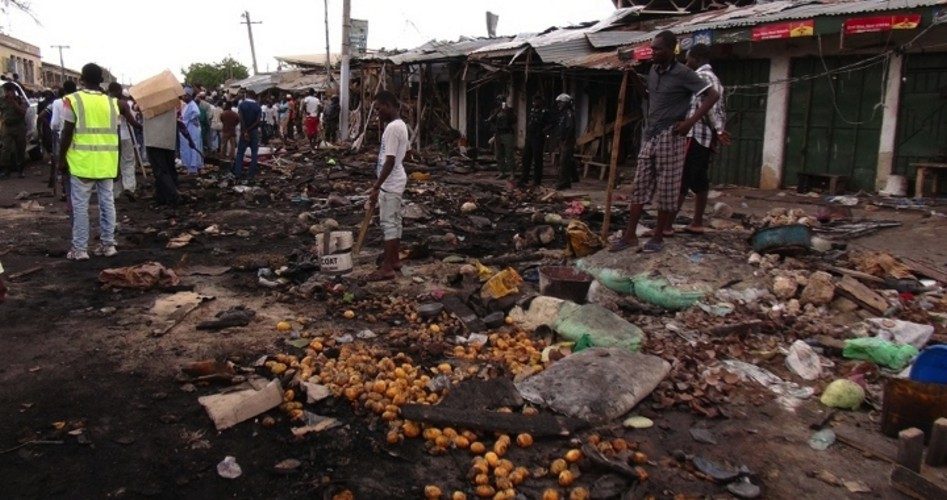
In the latest news of persecution out of Nigeria, the global church monitoring organization Open Doors has reported that at least 27 individuals were killed over the past week when the Boko Haram Islamist terrorist group attacked and burned at least three Christian churches in the nation’s Borno state.
According to witnesses quoted by Open Doors, gunmen identified with Boko Haram entered the Christian village of Dille on July 14. Witnesses said the terrorists were armed with anti-aircraft guns, rocket propelled launchers, and explosives, and proceeded to kill over two dozen residents of the village and set fire to the three church facilities.
Boko Haram, whose name means “Western education is forbidden,” kidnapped over 200 Nigerian girls in April, and, according to the group Human Rights Watch, the Islamist terrorist group has killed over 2,000 individuals in nearly 100 attacks so far in 2014.
“Boko Haram is effectively waging war on the people of northeastern Nigeria at a staggering human cost,” Corinne Dufka, the Human Rights Watch’s West Africa director, said in a statement. “Atrocities committed as part of a widespread attack on civilians are crimes against humanity, for which those responsible need to be held to account.”
Human Rights Watch said that the killings, kidnappings, and other crimes are “part of widespread attacks on civilians in over 70 towns and villages in northeastern Nigeria, in the federal capital, Abuja, and elsewhere.”
In many of the attacks, Boko Haram operatives have fired on civilians in busy marketplaces, churches, and residential neighborhoods, reported Human Rights Watch. In three villages in early June, “Boko Haram fighters impersonated military personnel to round up hundreds of villagers, then opened fire on them,” the monitoring group said, quoting local witnesses. “Two local chiefs from Attagara, one of the villages, told journalists they had buried 110 people killed in the attack.”
Open Doors reported that in late June, Boko Haram terrorists attacked several Christian villages in Borno state, killing scores of residents and setting fire to five churches. In one of the attacks, on June 29, gunmen on motor bikes and in pickup trucks stormed into the village of Kwada as Christian worshipers were gathering at a local church, killing at least 50 people. “The attackers fired at worshipers and those who tried to escape were chased and gunned down,” a witness was quoted as saying. “They killed anything they saw. Even animals were not left alive. Many people fled to the bush. They also set fire to houses and other properties before leaving the village.”
In addition to Kwada, the three neighboring villages of Ngurojina, Kautikari, and Karaggau were also hit by the terrorist group. “The five destroyed churches comprised a Baptist church, three Ekklesiyar Yan’uwa churches (EYN), and an Evangelical Church Winning All (ECWA),” reported Open Doors.
In May 2013, Nigerian President Goodluck Jonathan declared a state of emergency for Borno, as well as for the Adamawa and Yobe states, in an attempt to deal with the violence by the Islamist group. Meanwhile, the nation’s own security forces have reportedly become part of the problem. According to witnesses on the ground, abuses by Nigerian security forces have included “excessive use of force, burning homes, physical abuse, and extrajudicial killings of those suspected of supporting Boko Haram,” reported Human Rights Watch. “Amnesty International found that following a March 14 Boko Haram attack on Giwa Barracks that led to the escape of hundreds of detainees, the security forces executed hundreds of the unarmed recaptured detainees. ”
Corinne Dufka of Human Rights Watch said that “no matter how egregious the violence, Nigerian security forces engaged in operations against Boko Haram may not operate outside the law. The Nigerian government should recognize that it needs to protect its population both from Boko Haram and from abusive members of its own military and police.”
Photo of people at the scene of a Boko Haram bombing on July 2: AP Images



